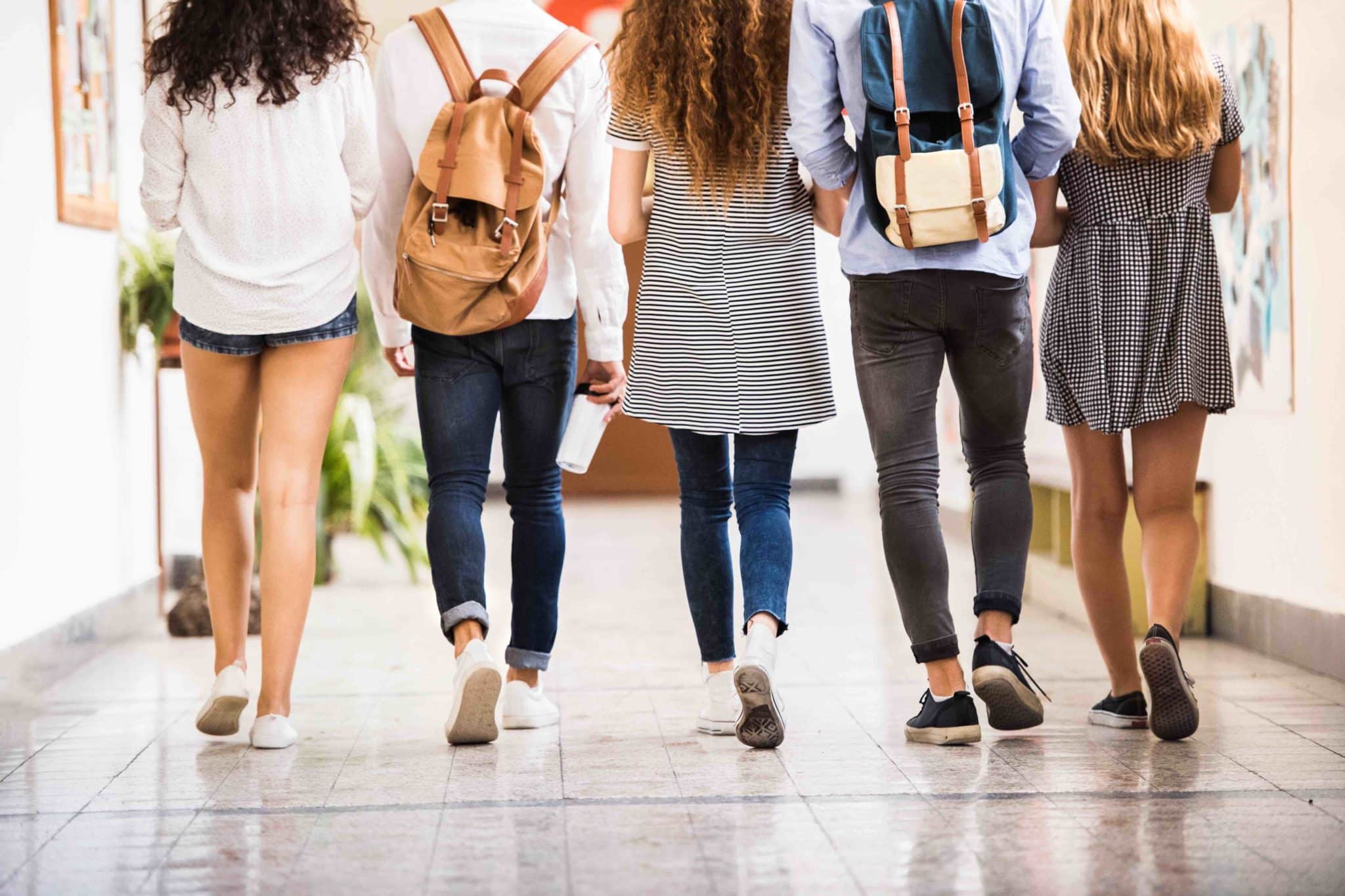 Photo courtesy of the Jewish Teen Education & Engagement Funder Collaborative
Photo courtesy of the Jewish Teen Education & Engagement Funder Collaborative
It’s tough being a teenager at the best of times, dealing with pressures from every direction while simultaneously trying to figure out who you are. But imagine being a teen during the COVID-19 pandemic.
“We know that for teens, their peers are everything, and they are not able to be face to face with their peers; that alone is huge,” Shira Rosenblatt, associate chief program officer at the Jewish Federation of Greater Los Angeles told the Journal.
“We know that for teens, their peers are everything, and they are not able to be face to face with their peers; that alone is huge,” Shira Rosenblatt, associate chief program officer at the Jewish Federation of Greater Los Angeles told the Journal.
To support teens during this unprecedented time and to coincide with mental health awareness month, the Jewish Teen Education & Engagement Funder Collaborative has created Collective Compassion, a group of events and experiences − all offered virtually and free to all comers.
The seven-year-old Collaborative is a group of 10 communities across the country, including Los Angeles, represented by the Federation. It receives significant funding from the Jim Joseph Foundation, with each community matching the foundation’s contribution. Its primary mission is to keep Jewish teens engaged with Judaism. But according to Collaborative Executive Director Sara Allen, “[Teen] wellness is foundational to our goals.” So last year, it introduced a new resource called Jewish Teens Thrive. And in January, in Los Angeles, it convened a group of mental health experts as well as representatives from a host of organizations engaged in work in this area to connect and learn from one another.
“Once COVID-19 hit, it really amplified the urgency,” Allen said. Fortunately, the relationships the Collaborative already had meant it was well-positioned to put something together quickly, even though it had never done anything quite like this before. It basically had this “fabulous group of professionals all deeply invested in teen wellness on speed dial,” Allen said.
She added, “We could make a powerful statement by doing it as a cross-community effort. Because we live in a virtual world, everyone could take advantage of the offerings. You no longer have to worry about geography.”
The events and experiences that make up Collective Compassion are divided into three categories: Creativity for Coping: Artist Led Workshops to Increase Resilience; Purpose & Meaning: Programs to Empower Yourself and Help Others; and Education & Awareness: Webinars & Social Media Campaigns to Share.

Some of the offerings, such as the May 20 conversation on managing teen stress and anxiety during a pandemic with Duke University student and “Don’t Tell Me to Relax” author Sophie Riegel, are presented live. Others, such as short “Movement Minyan” videos on activating potential via Jewish wisdom with Ohio-based Mitsui Collective, are available on demand.
However, not everything is exclusively for teens. There are several programs for parents and at least one for parents and teens to actively connect. This is a May 31 cooking class called “Baking for Balance: You Knead to Learn How to Braid Challah and Talk,” led by Atlanta-based Blue Dove Foundation, which works in the mental health and substance-abuse sphere.
“[Teen] wellness is foundational to our goals. Once COVID-19 hit, it really amplified the urgency. Everyone connects differently and there are many dimensions to wellness, so we sought out those that spoke to people’s body, mind and spirit.” — Sara Allen
“We tried to really offer a comprehensive though not exhaustive set of opportunities,” Allen said. “Everyone connects differently and there are many dimensions to wellness, so we sought out those that spoke to people’s body, mind and spirit. I think what they have in common is a creative approach to connecting with folks, and all tap into different elements that people may be seeking. And they’re designed to be very empowering and hands-on, filled with practical ways people can incorporate skills and practices throughout the year.”
In just the first week of May, the Collective Compassion website had nearly 1,000 visitors. But according to Allen, the program’s success can’t be measured in numbers alone.
“We will also look at how people engage in the topics,” she said. “Are parents having different conversations with their teens and feel more comfortable and competent about these issues? Are teens connecting with others and being reflective about what they’re experiencing?
“The other success,” she said, “is truly about the strength of the partnerships — that so many organizations are uniting to raise awareness of these issues and rise up to meet growing needs. I’m humbled by this, particularly.”
For more information visit Collective Compassion online.





















 More news and opinions than at a Shabbat dinner, right in your inbox.
More news and opinions than at a Shabbat dinner, right in your inbox.